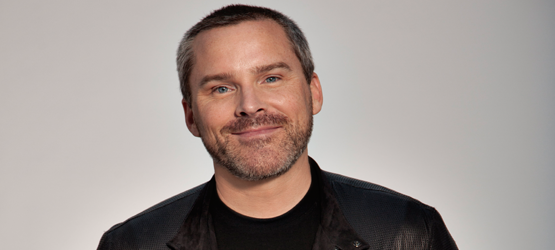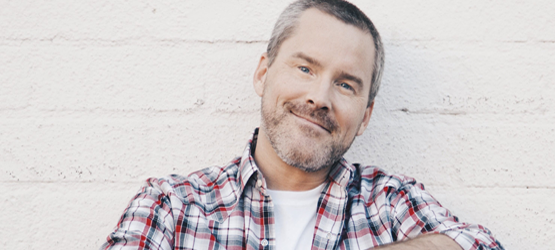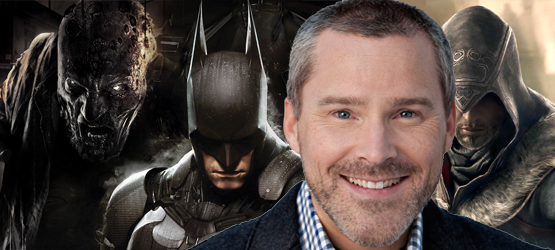Having voiced character’s like Ezio from the Assassin’s Creed franchise, Batman in Batman Arkham Origins and recently the protagonist Kyle Crane in Dying Light, voice over actor Roger Craig Smith has become one of the prominent figures in the gaming industry today. Recently, PlayStation LifeStyle’s own Dan Oravasaari got a chance to ask the acclaimed voice over actor a few questions about becoming some of the most well known characters in history and discuss how a character’s personality is brought to life.
PlayStation LifeStyle: First of all, thank you, Roger, for taking time out of your busy schedule to speak with us.
Roger Craig Smith: You kidding? Thank YOU for your interest! I’ll try my best not to be a colossal disappointment…
PSLS: When you are first given a role to play, how is it that you determine a characters personality? What are the first stages to bringing a character concept into reality?
RCS: For me, this is the part where the true collaboration of this process begins. I didn’t create the character or write the dialogue. I don’t know the entirety of the story at times. So, when it comes to determining the personality of a character, while there may be some clues based on dialogue, I really work closely with the director and the creative folks from the developer to understand what their collective vision is for the character. I can make certain choices in advance of the first sessions, but that almost always comes back to bite me, as the talented folks responsible for the dialogue and game concept have their own ideas. The whole point of my being there, my JOB, is to be a part of a production team and execute what they want from me. It’s not MY role, or MY character. I’m simply the lucky dork getting to voice the character created by someone else.
PSLS: When playing a role, such as with Ezio, how did you maintain a balance between the Italian accent and the English dialog? How did you prepare for that role?
RCS: My prep for this character was listening to as many different dialects of Italian as I could. The International Dialects of English Archive is an excellent online source for hearing how folks from all over the world speak English. I’m also a fan of Moto GP motorcycle racing, which had me listening intently to after-race interviews of then world champion Valentino Rossi, an Italian.
That was a challenging aspect to that character — working closely with my dialect coach in all sessions to get the accent as correct as it could and also trying to balance a performance that would work for a western audience of gamers. There were some creative freedoms of which we took advantage, for sure, but Ubisoft and the writers tried to make it as authentic as it could be.
PSLS: Has there been any performance, or line that you have ever looked back on and wish you had done differently?
RCS: Just about every single one. I’m rarely pleased with my performances. It’s an honor to be included in ANY production, don’t get me wrong, but it’s often such a disconnected recording process, for games mostly, that you do the best you can in studio, then wait to see what other folks did with the performance. That usually results in areas where I wish I could have given them a different and usually better performance.

PSLS: Could you walk us through a normal day of shooting? How do you warm up? How many times do you have to repeat lines?
RCS: I smoke two cartons of unfiltered cigs and down a bottle of American rye whiskey as a warm up, generally. Then swallow beach sand and general aggregate to get some texture in the voice, followed by a stick of butter to smooth it all out. Now, this works for me, but may not be for everyone.
Truthfully, I just try to get as much rest and drink water like a fish every day. If I don’t get enough rest, exercise and water to keep my body healthy, then the voice begins to suffer and it can’t repair overnight from the previous day’s work. THAT is my warm up. Every now and then I’ll do some breathing and vocal exercises if I’m a little phlegmy, but if I’m sticking to my regimen, then I’m usually good to go.
In a VO session, you can do MANY takes of a single line, depending on the process and what’s needed for the role. That’s why it’s so important for me to work as closely as possible with the director, as that person is the go-between from what the client wants and what I’ll attempt in the booth.
PSLS: Given the sometimes odd nature of games, what has been the strangest line you have ever had to read?
RCS: “Somebody get this guy off my rear, I can’t take this pounding much longer.” Yep. Flying combat game from back in the day.
PSLS: What is it like to take over an iconic and established role, such as with Batman?
RCS: Unreal and surreal are the words I use over and over again. It’s not something that really sinks in. I look in the mirror and see my dorky face looking back and can’t begin to fathom how I’ve been able to voice the characters I have. It’s an honor to have had even ONE opportunity. Truly, it’s that way with most roles, though. I’m always amazed that the phone rings with people giving me work. It’s amazing…
PSLS: With Dying Light being set in such a moody atmosphere, how did you bring that level of evolving tension into your own voice while being in a recording studio?
RCS: Acting.
I’d love to leave it as a one-word answer, but that comes off pretty awful. All jokes aside, it’s just that—we act in the booth. Voice acting is just about as imaginative as acting gets. No sets, no costumes, just pure theater of the mind and a vocal mic. In that way, it’s an absolute blast to be a voice actor, but also kinda scary that the vocal baby you just birthed out at a mic is then taken by other folks and becomes something else. Your timing of a line can be altered, certain portions of a line can be deleted, all while affecting the performance you originally imagined and delivered.
PSLS: With both of your characters in Dying Light and Assassin’s Creed performing parkour in each game, do you have be more physical while doing lines for these roles? Have you ever tried to parkour?
RCS: If I tried parkour I’d likely end up losing my VO career. One attempt at me jumping from one roof to another would surely find me losing teeth as I miscalculated the distance and wound up eating rain gutter, ending gloriously with my beautiful face breaking my inevitable fall. VO with what’s left of your jaw wired shut doesn’t sound all that great.
All game VO can involve a lot of efforts and yes, we can be quite physical behind the VO mic. The problem is, too much movement can be picked up by the mic and destroy the take. So, it’s pretty funny watching VO actors trying to physicalize their movements, but in a contained way so as to not move too much and create noise. We look like crazy people trying to swat away a bee that isn’t there, all the while standing straight and facing a mic.

PSLS: Given that you are one of the more well known voice over actors in the industry, what advice would you give to anyone looking to break into the field?
RCS: Oooof, always the toughest question to answer. Really and truly, it’s going to be whatever YOU make of it. Nothing I can suggest here is going to make a major difference in your career. If you have the drive, passion, professionalism, talent and tenacity to set a goal and achieve it, then you’ll do well in whatever you attempt.
That being said — take acting classes, take voice acting classes and be prepared to invest in yourself and this career over time. It’s not a race, enjoy the journey and be honest with yourself during the process, but never be ashamed to be where you’re at in the journey.
PSLS: Since you have done voice work for both the film industry, and games industry, what would you say is the biggest difference between the two?
RCS: Games have to “cover” a lot more ground with certain unknown variables than film. For instance, all the sounds we capture for playable characters are to keep it sounding as real as possible with as many variations in sounds as possible. We don’t know if the player is gonna try jumping to a ledge over and over again, so if there was only one sound the character makes when jumping, no matter what distance, it’d begin to sound silly and way too repetitive. So, we capture variations on all the different types of sound so that there are different sound files to play when different actions of varying intensity happen.
With a film, you’re doing what is needed for that specific scene and its storyboarded and final. Since it’s a more passive experience for the viewer, there aren’t any variables you need to cover. The performance will be the same each time it’s watched.
Play a game and you’re participating. You’re doing much more than passively watching. So, we gotta try our best to cover whatever it is you might do with the character — Including taking too much pounding from the rear.
PSLS: We really do appreciate you taking your time to answer these for us. All of us on staff have really enjoyed your work, and were really excited to be able to have this opportunity.
RCS: You guys are awesome and I really appreciate you letting me participate. Folks can see what I’m up to and roll their eyes at my lame comments on Twitter @rogercraigsmith. Thanks!
Again, a special thank you to Roger Craig Smith for answering a number of our questions and for bringing to life many of the characters that all of us have been getting to know over the years. For more news and information about what games Mr. Smith will be working on in the future, make sure to stay tuned to PSLS.








